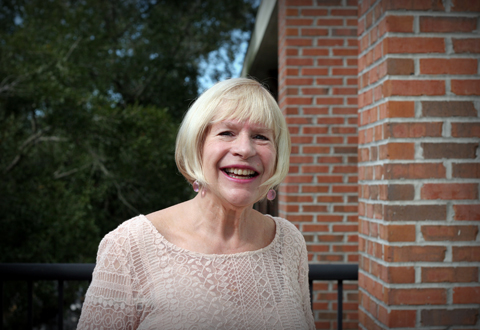Center of Innovation on Disability & Rehab Research (CINDRR)
Utilizing the RESCUE Stroke Caregiver Website

Connie Uphold, Principal Investigator, CINDRR Gainesville, FL
Caregiver depression is common following a family member's stroke and often contributes to a stroke survivor's hospital readmission and institutionalization if the caregiver is unable to perform continued in-home care. Researchers have found that interventions to help caregivers resolve problems that might lead to depression are effective in reducing depressive symptoms, but they have been underused because implementation requires large amounts of staff time and involves multiple in-person or telephone sessions.
To overcome these barriers, the long-term goal of this program of research is to implement stroke caregiver programs that use low-cost, sustainable interventions. The immediate goal of the current project is to test, using a randomized controlled trial, a problem-solving intervention for stroke caregivers that can be delivered during the Veterans' in-patient stays followed by online, in-home sessions. Investigators have modified a problem-solving intervention by adding web-based training (http://www.cidrr8.research.va.gov/rescue) and on-line skills training.
This study will test the impact of an individualized, multi-component (in-patient and in-home) discharge planning intervention that is specifically designed to enhance caregiver problem-solving skills and improve caregiver health. The researchers will modify an effective, problem-solving intervention for stroke caregivers that was developed by Grant, et al. The project will conduct a two-group randomized controlled trial using repeated (baseline, 7 weeks, 14 weeks) evaluation measures and mixed methods to determine caregivers’ perceptions of the value, facilitators, and barriers to participating in the intervention.
The research team will enroll 240 caregivers of Veterans with strokes. The caregivers will be recruited from 3 sites 1) North Florida/South Georgia Veterans Healthcare System, 2) Miami VA Healthcare System, and 3) James A. Haley Veterans' Hospital, Tampa, FL in VISN8. Eligible caregivers will be interviewed and complete an initial evaluation and will be randomized to two groups: 1) intervention group, or 2) usual care (control) group. The in-patient component of the intervention, before the Veteran's discharge to home, will be a nurse-guided session to help caregivers learn problem solving skills by using information and tools on the RESCUE stroke caregiver website. Once the Veteran is at home, caregivers will use the RESCUE website and collaborate with a nurse via the RESCUE Message Center to facilitate problem-solving. Caregivers will be contacted by telephone at 7 weeks and 14 weeks from the initial interview by a research assistant (RA) and asked to answer questions/measures (i.e., depressive symptoms, burden, problem-solving abilities, self-efficacy, health-related quality of life, satisfaction, functional abilities of Veterans).
For the cost effectiveness component of the project, we will review the Veterans' health record in the VA Computerized Patient Record System (CPRS) to obtain information on the Veterans' healthcare utilization. We will determine the budgetary impact of the intervention by examining the cost data in the VA Decision Support System National Data Extracts. Qualitative interviews will be conducted with selected caregivers to obtain in-depth perceptions of the value of the intervention and facilitators and barriers of the intervention. A key component of the project is partnering with non-VA organizations, VA programs and offices. We hope to discuss the perceptions of a caregiver and a Veteran with a stroke to plan, develop, promote, and evaluate the intervention. If the intervention is successful, we will collaborate with these partners to plan for the next steps of implementation, e.g., rolling out at different sites, regions, or VA-wide.
Recruitment is scheduled to begin in Gainesville, Miami, and Tampa in October 2014.



















